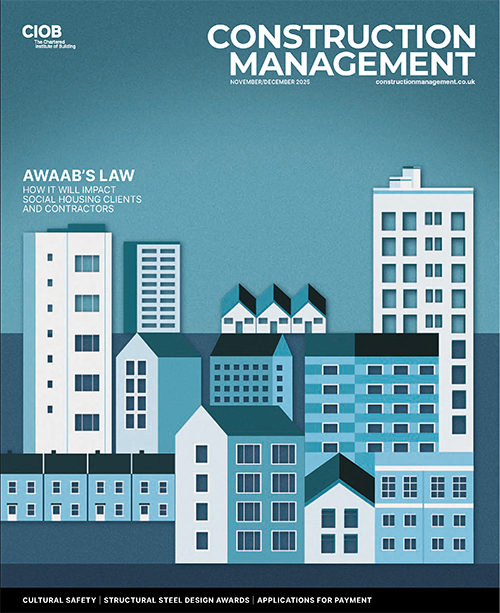An interactive online training course set up to teach construction personnel the basics of equality and diversity in the workplace is due to be officially launched on 4 June.
The CITB-approved course, provided by Constructing Equality, is designed for construction employees at any level within a company and takes just three hours to complete.
Its six modules cover the legal responsibilities for the individual and the company, the social and economic benefits of encouraging equality and diversity for business and the wider industry, and practical measures staff can take to improve attitudes in the workplace.
All subject matter is framed within the context of UK construction, with industry-specific statistics, case studies and other examples, and broken down into three modules, each containing three 15-minute interactive presentations and a 15-minute test.
“Equality is still severely misunderstood across all roles within the industry and many people have confused ideas about what they think equality is and what the law requires,” said Chrissi McCarthy, managing director of Constructing Equality. “We set up the course to help people quickly understand what the law actually says, why equality and diversity is important, and the real life benefits it can have for individuals, businesses and for the industry as a whole.”
The internet-based approach to training has several benefits over face-to-face classroom lessons, she added: “Although some people thrive more in a face-to-face environment, others get more from being online. The tests are carried out online, so companies can easily check how much information is being picked up by employees, and because the course can be completed in 15-minute chunks it can fit into peoples’ working day. It is getting increasingly harder to pull people away from their jobs for training, especially in construction where many people work 60-70 hour weeks.”
The content is designed to respond to different learning styles – audio, visual and kinetic. It is presented by two “cartoon” guides with written information in speech bubbles for visual learners, and a soundtrack for those prefer to listen to pick up information. There are also regular interactive tasks, asking learners to click to select the right answers, to reinforce learning with doing.
Feedback is instant and some questions are ingenious: one task invites learners to “click and drop” regions of the country into categories according to the proportion of the population that is black or minority ethnic (BME).
The basic course can be set up on any major Learning Management System used by companies, or accessed via Constructing Equality’s online system, which also provides access via tablets and smartphones.
The cost of participation varies depending on the number of employees signed up, from £35 per head for up to 50 people to £15 per head for 1,000 people plus.
Depending on demand, the basic training course may soon be refined to cater separately to both management and site operatives.
In six months Constructing Equality also plans to launch more advanced courses targeting all levels of an organization, including managers, HR and company directors. The latter will include advice on how to leverage a company’s approach to equality to win tenders and strengthen their approach for clients.
The online course went through a test phase earlier this year, completed by the construction firms BAM, Costain, a Hochtief-Murphy joint venture, Seddon, Shepherd, Robertson, and Miller. Feedback from the test showed that respondents overall viewed the training overall as of a high quality, easy to follow and clear.
“The reason this training is effective is also about our approach,” said McCarthy. “We don’t like the idea of scaring people with the legislation and what could happen if they don’t comply. We take the approach that understanding equality can be good for all of us, it’s not just about acknowledging another group of people we have to be nice to.”
“The truth is that fewer and fewer people want to work in the sector so you have to get to the bottom of why. And it is not just women and minority ethnic groups who are being put off, we’re also losing interest from the many white males we depend upon. Teaching the principles of equality and diversity can help create a better environment for everybody in the workplace,” she said.










